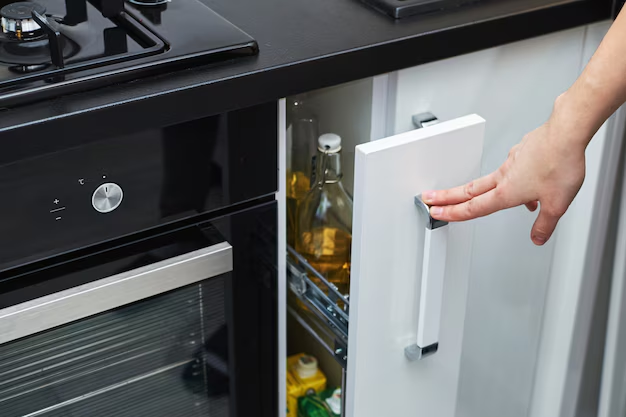Can Your Refrigerator Handle 100 Degree Heat? A Comprehensive Guide
As temperatures soar past the century mark, many homeowners begin to question the efficiency of their appliances, particularly refrigerators. Can your trusty fridge stand up to the sweltering heat and keep your food safe when the mercury hits 100 degrees? This article dives deep into this hot topic, providing insights on how refrigerators function in extreme temperatures and offering practical strategies to maximize their performance when the heat is on.
🔎 Understanding How Refrigerators Work
The Basics of Refrigerator Operation
To grasp how refrigerators cope with high temperatures, it's beneficial to start with a basic understanding of their operation. Refrigerators work by removing heat from their interior to keep the contents cool. They achieve this through a cycle of evaporation and condensation using a refrigerant fluid.
- Evaporation: Inside the refrigerator, the refrigerant absorbs heat as it changes from a liquid to a gas.
- Compression: The compressor then compresses the refrigerant gas, increasing its pressure and temperature.
- Condensation: As the gas moves through the condenser coils, it releases the absorbed heat and turns back into a liquid.
- Expansion: Finally, the liquid refrigerant passes through an expansion valve, dropping in pressure and temperature, ready to evaporate and repeat the cycle.
Impact of External Temperature
The ambient temperature plays a significant role in refrigerator efficiency. In cooler conditions, a refrigerator requires less energy to maintain its internal temperature. However, when external temperatures rise:
- Increased Workload: The compressor must work harder and longer to remove excess heat from the refrigerator's interior.
- Reduced Efficiency: Prolonged high heat can stress the unit, leading to wear and tear over time.
🌡️ Challenges of Operating in Extreme Heat
Common Issues Faced by Refrigerators in 100 Degree Heat
When confronted with extreme heat, refrigerators may encounter several challenges. Here are a few common issues:
Overworking the Compressor: As the ambient temperature rises, so does the demand on the compressor. Continuous high operation can lead to overheating or failure.
Higher Electricity Consumption: More energy is required to maintain the desired temperature, which could lead to higher electricity bills.
Increased Interior Temperatures: With an overheated compressor, the refrigerator may struggle to maintain the set internal temperature, resulting in higher temperatures inside the unit.
Potential Food Spoilage: If interior temperatures rise above safe levels, the risk of food spoilage increases, which can be both wasteful and costly.
Practical Tips for Maintaining Refrigerator Performance in Heat
To keep your refrigerator running smoothly when temperatures rise, consider the following strategies:
- Optimize Placement: Ensure the refrigerator is placed in a well-ventilated area away from heat sources such as ovens or direct sunlight. This will help it operate more efficiently.
- Regular Maintenance: Clean the condenser coils regularly to remove dust and debris, which can impede heat dissipation.
- Seal Check: Inspect door seals for any gaps or cracks that could allow warm air to enter and cause the refrigerator to work harder.
- Reduce Frequent Opening: Minimize the number of times you open the refrigerator door, as this allows warm air to enter, disrupting the internal temperature.
🛠️ Enhancing Your Refrigerator's Heat Resilience
Advanced Techniques to Boost Efficiency in High Temperatures
Beyond the basic strategies, additional methods can further enhance your refrigerator's performance during extreme heat:
Utilize a Heat Shield: Investing in a heat shield or insulation can help protect your refrigerator from excessive ambient heat, especially if it's located near a wall or window that gets direct sunlight.
Use a Fan: Placing a small fan near the back of the refrigerator can improve airflow around the condenser coils, aiding in more effective heat removal.
Set Proper Temperature Levels: Ensure your refrigerator is set to the optimal temperature. The recommended setting for most refrigerators is between 37°F to 40°F (3°C to 4°C) for the refrigerator compartment and 0°F (-18°C) for the freezer.
When to Consult a Professional
Understanding the signs of potential refrigerator stress can help you decide when to reach out to a professional:
- Persistent Odd Noises: Unusual noises from the compressor could indicate mechanical issues.
- Frequent Cycling: If your refrigerator cycles on and off more frequently than normal, it may be struggling to maintain temperatures.
- Unresponsive Temperature Adjustment: When adjusting the thermostat doesn't result in the expected change, there might be an underlying issue.
📋 Practical Tips for Heatwave Efficiency 🌞
- ☀️ Optimize Air Circulation: Leave enough space around the refrigerator for proper ventilation.
- 🧊 Stock Wisely: Keep the freezer stocked. A full freezer retains cold better than an empty one.
- 🔍 Monitor Temperatures: Use a thermometer to regularly check the internal temperature.
- 🚪 Limit Door Openings: Open the refrigerator door as infrequently as possible.
- 🛡️ Shield from Sunlight: Install blinds or shades to keep direct sunlight off the appliance.
Concluding Insights on Refrigerator Performance in High Heat
When the temperature outside rises to 100 degrees or more, it's reasonable to be concerned about your refrigerator's ability to function effectively. Although hot weather can indeed place additional demands on your fridge, understanding its workings, implementing practical strategies, and performing regular maintenance can bolster its resilience. By following the guidelines outlined in this article, you can ensure that your refrigerator stays efficient, keeping your food safe and your energy bills reasonable, even during the hottest days.
Keep these tips handy and remember that when you're facing a heatwave, a little extra care can make a world of difference for your refrigerator's performance. Stay cool and confident, knowing that your fridge can handle the heat with the right approach!

